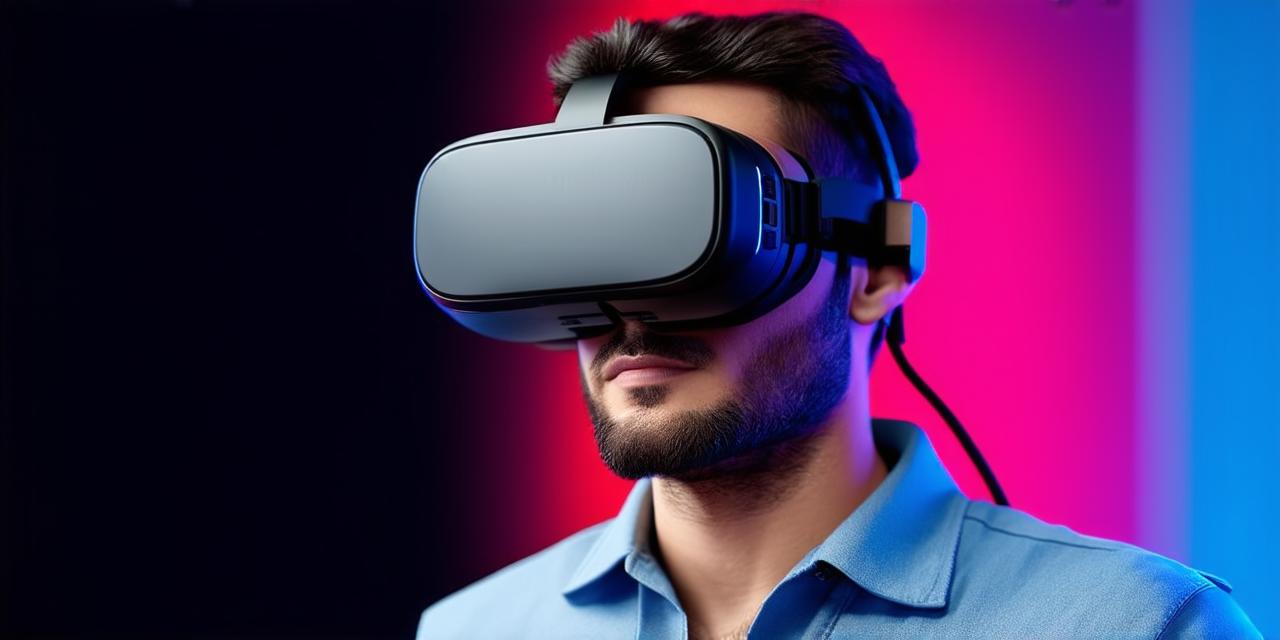Virtual Reality (VR) technology has revolutionized the way we interact with digital environments, allowing us to experience immersive simulations of real-life situations.
This technology has also found applications in the field of mental health, particularly in exposure therapy. Exposure therapy is a form of psychological treatment that involves gradually exposing patients to their fears and anxieties in order to reduce their impact on the patient’s life.
VR exposure therapy takes this concept a step further by simulating these real-life situations in a controlled environment, allowing therapists to gradually expose patients to their fears and anxieties while ensuring their safety and well-being.
VR exposure therapy has emerged as an increasingly popular treatment option for a range of mental health conditions due to its ability to provide a safe and effective way to treat these issues. With the growing popularity and accessibility of VR technology, more individuals are turning to this form of treatment.
However, it is crucial to understand the effectiveness of VR exposure therapy before investing time and resources into developing this type of therapy.
A recent meta-analysis published in Frontiers in Psychology reviewed 23 studies on the effectiveness of VR exposure therapy for a range of mental health conditions. The findings were promising, with VR exposure therapy showing significant improvements in symptom reduction for anxiety disorders, depression, and PTSD.
In particular, the study found that VR exposure therapy was more effective than traditional exposure therapy or no treatment at all.
One study conducted by researchers at the University of California, Irvine, found that VR exposure therapy was as effective as cognitive-behavioral therapy (CBT) in treating PTSD. In this study, participants were randomly assigned to either VR exposure therapy or CBT, and both groups showed significant improvements in symptom reduction compared to a control group.
Another study published in the Journal of Traumatic Stress found that VR exposure therapy was effective in reducing symptoms of PTSD in veterans with complex PTSD. The study found that VR exposure therapy was more effective than traditional exposure therapy or no treatment at all, and participants reported significant reductions in symptoms after completing the treatment program.
These studies demonstrate the effectiveness of VR exposure therapy in treating a range of mental health conditions. However, it is important to note that not all individuals respond equally to this form of treatment. It is essential for therapists and virtual reality developers to work together to tailor the therapy to meet the unique needs of each patient.
The benefits of VR exposure therapy are numerous, particularly for virtual reality developers. With VR technology becoming increasingly popular, there is a growing demand for effective treatments that utilize this technology. Developing VR exposure therapy programs can be a lucrative opportunity for virtual reality developers, as well as a way to make a positive impact on people’s lives.
One of the key benefits of VR exposure therapy is its ability to simulate real-life situations in a controlled environment. This allows therapists to gradually expose patients to their fears and anxieties, which can be difficult or impossible to replicate in real life. Virtual reality developers have the opportunity to create highly realistic simulations that can be used for exposure therapy, providing a safe and effective treatment option for mental health conditions.
Another benefit of VR exposure therapy is its ability to be personalized to the individual needs of each patient. Each patient’s experience with their fears and anxieties is unique, and VR exposure therapy can be tailored to address these specific issues. Virtual reality developers have the opportunity to work closely with therapists and mental health professionals to create programs that are specifically designed to meet the needs of individual patients.
Case studies provide insight into the effectiveness of VR exposure therapy in treating specific mental health conditions. One study conducted by researchers at the University of Oxford found that participants with social anxiety disorder were randomly assigned to either traditional exposure therapy or VR exposure therapy. Both groups showed significant improvements in symptom reduction compared to a control group, but the VR exposure therapy group showed greater reductions in symptoms compared to the traditional exposure therapy group.
Another study published in the Journal of Traumatic Stress found that VR exposure therapy was effective in reducing symptoms of PTSD in veterans with complex PTSD. The study found that VR exposure therapy was more effective than traditional exposure therapy or no treatment at all, and participants reported significant reductions in symptoms after completing the treatment program.
In conclusion, virtual reality (VR) exposure therapy has emerged as an increasingly popular treatment option for a range of mental health conditions due to its ability to simulate real-life situations in a controlled environment. The latest comprehensive review on the effectiveness of VR exposure therapy has shown that this treatment option is highly effective in treating a range of mental health conditions, including anxiety disorders, depression, and PTSD. Virtual reality developers have the opportunity to create highly realistic simulations that can be used for exposure therapy, providing a safe and effective treatment option for people struggling with mental health issues. As VR technology continues to evolve and become more accessible, we can expect to see even greater improvements in the effectiveness of VR exposure therapy for a range of mental health conditions.
